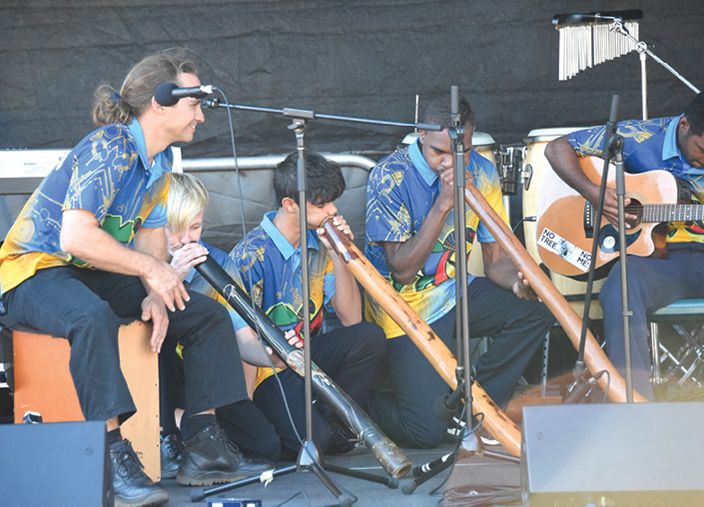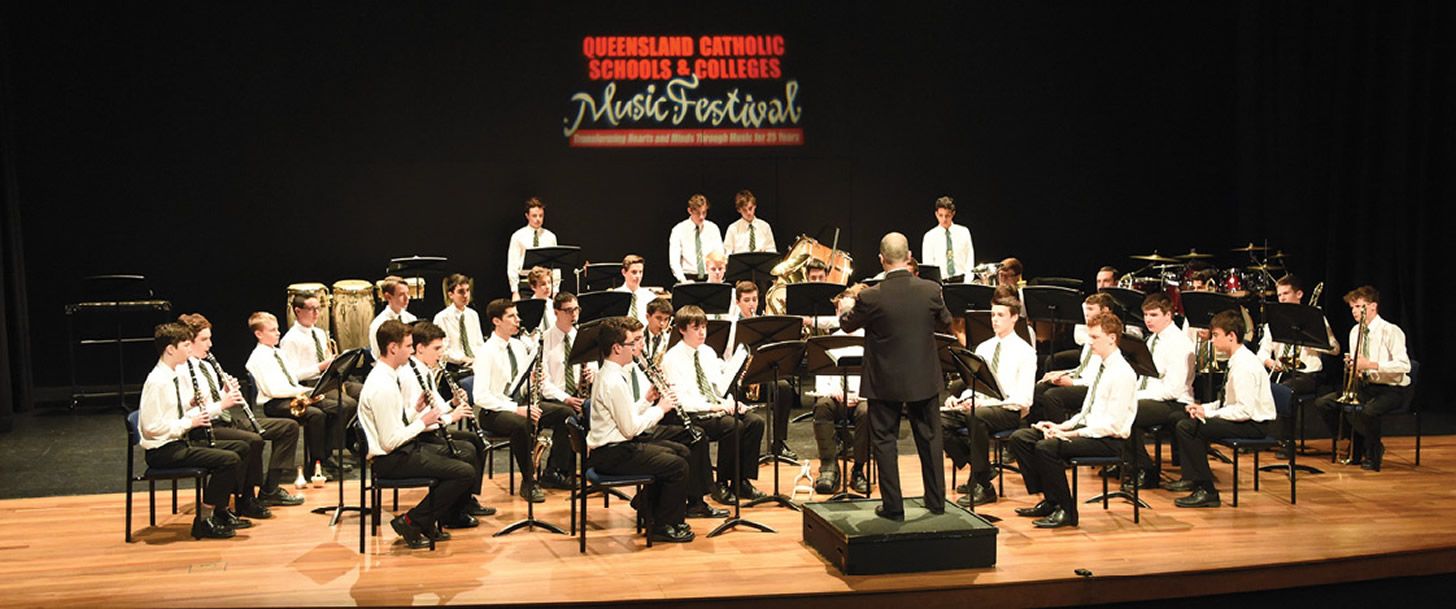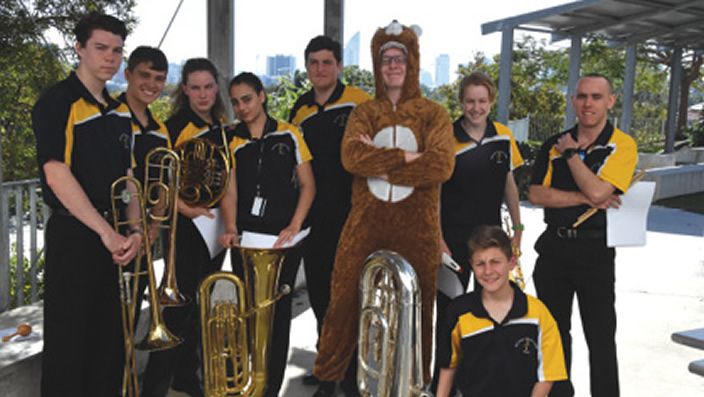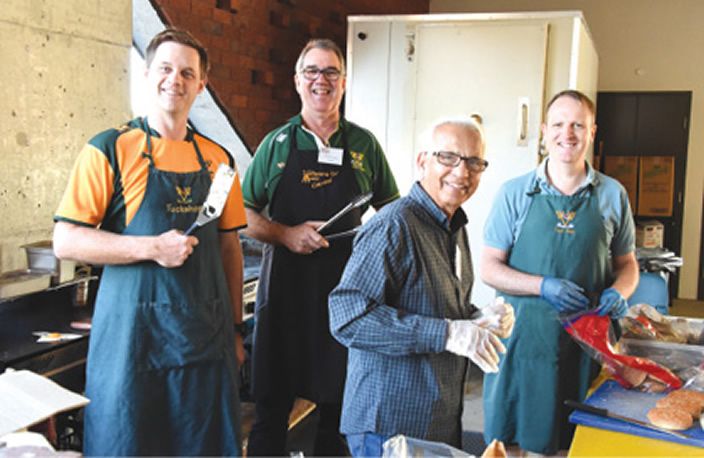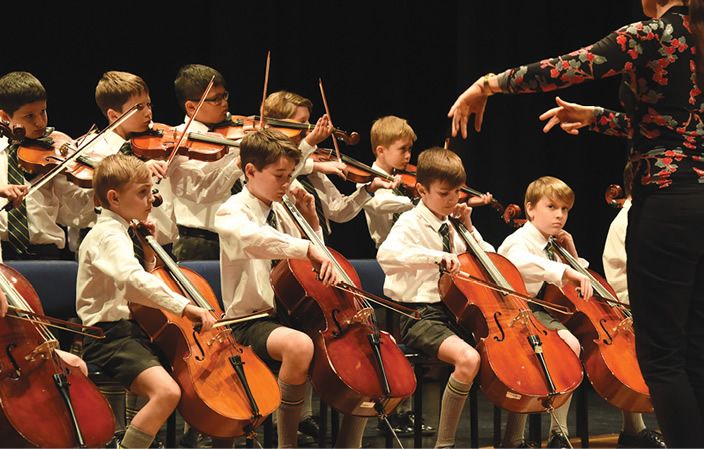“A large number of people who may come from diverse backgrounds – who have different experiences and different abilities – are still able to draw together to work towards a common goal.
“It’s the music that unites them: it doesn’t matter if they can’t speak the same language, doesn’t matter that they may not have the same political or religious views, we can all come together in that context and create beauty,” Michael said.
Michael said the support of a large team of people helped pull off another successful year of the festival.
“We have a core organising group of four people that work on the festival all year. We have a large organising committee which comprises mostly our music support group and a number of past parents and old boys who assist us in the behind the scenes preparing and logistics for the weekend. We then have 1900 volunteer positions that we fill to assist us over the four days.”
An extraordinary effort made by teachers, school staff and volunteers – the QCMF is but one example of the commitment teachers and school staff make to their profession.
Music teachers need time and support
Music teacher and member Matthew Owen of Chinchilla Christian College in the Darling Downs region of Queensland spoke of what music teachers do to provide this ongoing commitment to students
“In entering the world of music, children need inspiration, support, time and more time.
“Time for growth is something that students need. It is no use expecting a child to master a new instrument on a half hour lesson and an hour’s rehearsal each week.
“Time must be set aside to practise and master, and encouraging both students and parents to make this a part of the child’s typical day is one of the greatest challenges a teacher can have.
“Students also need the teacher’s time. Preparation in instrumental music is as much a need – and challenge – as it is in classroom music, or any other subject: organising photocopies, sourcing music, repairing instruments, marking up conductor scores.
“Finally, students need the support of both their parents and the teacher. If a parent doesn’t care or a teacher isn’t available, all but the hardiest and most motivated of students will give up within a few years.
“In creating any kind of culture in a school, the teacher’s efforts are amplified by support from administration. Without adequate funding, teachers seeking quality are often limited to a choral program, which is less expensive to maintain than an instrumental program, and a classroom music program that can still be engaging through singing and movement, but limited in its use of instruments.
“At its most basic, music requires a voice. With only a whiteboard and a knowledgeable teacher, musical literacy can be taught, and a world of quality songs and choral music brought to a child’s attention in the process.
“However, if a teacher or school desires to apply children’s knowledge on an instrument or to develop an instrumental music program, more extensive resourcing is a must.
“Where the line between necessary and extravagant sits can be difficult to define, and especially in the non government sector, the resourcing of music and arts programs varies wildly.
“Some schools allocate extraordinary amounts of time – including class time – and resources to see that every child’s artistic potential is developed and fulfilled, while others see teachers suffering from inadequate resourcing, poor teaching rooms and poor support from administration,” Matthew said.
Resilience and resources are key to success
Working across multiple schools in the Brisbane area, member and instrumental music teacher Lisa Allely said she sees first hand the positive effects music education can have on a student’s resilience.
“When learning to play an instrument, one makes a lot of mistakes on the first try.
“I have to convince students every day that they will sound pretty bad at first, but that it is worth trying their hardest to get better.
“It seems to be getting worse in recent years – students give up so easily and think they have failed if they make one mistake when playing.
“Learning resilience is a big part of learning an instrument.”
To teach these important skills, Lisa said school, admin and parent support is essential.
“A good music program starts with supportive admin, enthusiastic teachers, and a parent body that wants it. With these elements in place, it just takes time, consistency and setting realistic goals in long term planning.
“Assuming the school and administration is supportive, my biggest obstacle is parents. It all seems to come back to the level of parent support and understanding of what it takes to learn an instrument – including home practice.
“From parents making sure their child is able to make the initial commitment to music, to waking their child up in the morning for a 7.30am rehearsal – parent support is necessary every step of the way.
“While in my experience the schools I have worked at have provided excellent resources, the resource I really lack is time: the time to do thoughtful planning, and time to research new resources,” Lisa said.
It is with the commitment of these passionate professionals that students are able to enjoy the world of benefits that comes with being exposed to an arts culture at school. Pulling off a successful music program is no mean feat – and the key to fostering quality music education is to ensure our teachers and school staff are provided with the resources and working conditions to do so.
References
http://researchrepository.murdoch.edu.au/id/eprint/9459/1/music_review_reportFINAL.pdf
https://qcmf.com.au/
http://www.curriculum.edu.au/verve/_resources/National_Education_Arts_Statement.pdf
